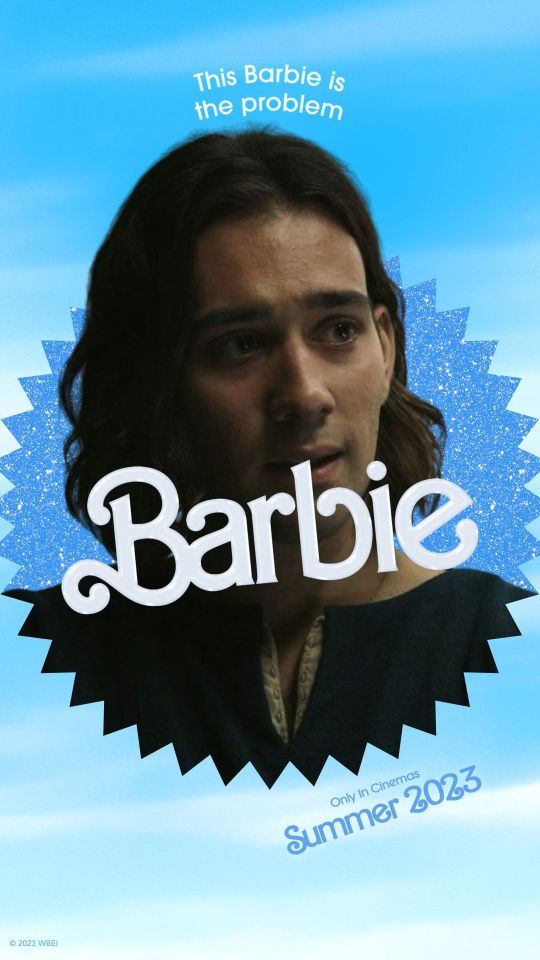#merlin iscariot
Note
unpopular opinion: arthur (as much as i like him as a character) was useless in terms of prophecy and liberation of the magic people. not just bc he never ended up lifting the magic ban but bc literally anyone sitting on the throne could have done that. i see no reason why it had to be arthur specifically. but the show liked to pretend like he was the only way to achieve a positive future bc the opprressed community cant simply help themselves that would be silly ig? no no they need to patiently wait that maybe one day their oppressor (whos literally continuing his fathers genocide even if less zealously) has a change of heart and they wont be hunted down like animals anymore. never mind the countless people that will have to die in the mean time. merlin can kill a bajillion people on screen and thats fine and for the greater good but if someone tries to kill One guy sitting on a fancy chair with a fancy hat suddenly thats too extreme. half the time it felt like the show was pointing to merlin as a poster child of how to act when oppressed. the fact that morgana growing bitter about uthers reign is framed as inherently bad and what directly lead to her becoming evil tm is particularly infuriating to me. the choice to create this very ya dystopian setting and then cast the oppressors as part of the main cast and the final solution is just very weird to me. i think it wouldve been objectively for the best if the magic community had overthrown arthur (or uther really but thats not really contested.. unless youre the bbc. this show is so british (derogatory))
in that vein: mordred has never done anything wrong in his entire life and that includes killing arthur
one more for the "arthur was a loser" folder
[ok but about the rest!! I have many thoughts about it. merlin as a member of an Oppressed Minority. his betrayal of his own kin. I'm putting it all under a cut bc you guys don't need to see me rambling about this and the disir again]
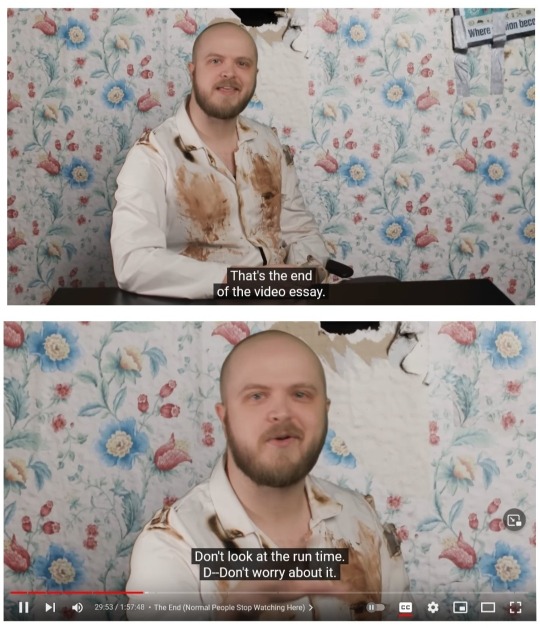
you make a good point — the way in which a story is framed, even the moment we choose as a "beginning", determines what characters we'll feel sympathy for, even when the facts at our disposal are the same.
I don't think the writers were trying to create any kind of deep social commentary btw. just so we're clear. merlin is the hero of the story and his mission is to keep arthur safe. we've got to root for them both.
to have a king with a hatred (fear) of magic gives us a convenient antagonist within the court. merlin having to defend the men that would have him killed for his magic is a great source of dramatic tension. it sort of follows that the people he has to fight against to defend the king/prince are other magic users, or magical threats. (it also keeps things interesting because there would be no challenge for merlin otherwise).
there isn't much of a point in exploring the motives and backstories of other characters with magic (with the exception of morgana, perhaps). They are only briefly touched upon — so these characters remain vaguely antagonistic for the most part. Neutrally aligned at best (see mordred).
We are shown that the druids are (mostly) aware of the prophecy that marks merlin/emrys as the saviour of their kind.
what I find fascinating are merlin's interactions with magic people who are either not aware of this prophecy (gilli) or have no faith in it (kara, possibly?) Because we're never given the chance or the time to see things from their perspective. To see merlin through their eyes.
When gilli says:
"It is time that someone struck a blow for the likes of you and me. And if you're too weak, then I will." (!!!)
It makes him sound like some kind of extremist, but really, when you think about it. isn't his anger kind of justified? I'm not condoning his violence, I'm just saying — it's understandable. uther has killed so many innocent people. literally drowned innocent children. and merlin's like "violence isn't the answer!" — and I can see his point!! but I can see gilli's just as well. and I find it so interesting that he's still addressing merlin as a brother ("the likes of you and me"), even when expressing disappointment in his actions and calling him weak. because they are the same. he's saying "you're deluded, and cozying up to the enemy won't save you"
this episode also contains what is (probably) my favourite dragon call. when merlin summons kilgharrah in other episodes, he's usually in the middle of some Urgent Situation. matters of life or death. there is nothing urgent here, really. yeah, it is arguably a matter of life or death, but nothing merlin couldn’t have stopped on his own. he really just called on kilgharrah to have a heart to heart with a friend — a member of his class.
("You are a creature of magic, and only a creature of magic could hope to understand.")
this episode is about merlin looking for kinship and still feeling isolated from his magic brethren. there's something tragic about the way the prophecy makes him unable to connect to some of the people who would be best placed to understand him.
and gilli plants a small seed of doubt in merlin's mind. "You've been pretending for so long now that you've actually forgotten who you are" (!!)
but kilgharrah reassures merlin that there's a golden age coming. so merlin does what he has to do — he saves uther once again. before gilli leaves, merlin reassures him that one day they will be free.
he tells mordred the same:
"It won't always be like this. One day we will live in freedom again."
and then, when he has the unique opportunity to use his influence on arthur to sway his opinion in the right direction. he fails.
he condemns himself, and the people he spoke to of freedom, to keep living in fear and in hiding — and what's even more upsetting, he does so while talking of a "just and fair kingdom"!
("You must protect the world you spent your life building, a just and fair kingdom for all." What an interesting choice of words. camelot isn't just and fair to all — as merlin knows well. he's lying to arthur, and possibly to himself.)
imagine being gilli or mordred and hearing him say that "there can be no place for magic in camelot." (!) What a slap in the face.
I've read meta suggesting that the disir were testing merlin just as much as arthur (or even more so than him). I'm inclined to believe it — I want to believe it. If anything because it makes the story all the more interesting and tragic. (I know what some are going to say — if mordred's destiny was to kill arthur, it would've happened anyway. but remember what else kilgharrah said — the future is never clear. there are many paths).
I understand why merlin did what he did, I really do. but for a moment, the fair and just kingdom he spoke of was within reach, and he failed to grasp it.
so was gilli wrong after all?
[and kara. I feel quite sympathetic towards her. we know arthur. she can't see him from our (merlin's) perspective. for her, he might as well be uther. magic people are still persecuted under camelot's law. she has spent her life on the run, she has seen people she loved be killed. and from our (arthur's) perspective, she looks like some kind of fanatic. but in reality. put yourself in her shoes. when arthur offers her a chance to save herself by "repenting" for her crime, she says she has nothing to repent for. "it is not a crime to fight for your freedom". that's the belief she's willing to die for. did she deserve to die for it?
(I also think there's an interesting parallel in merlin failing his kin in the disir, and arthur failing mordred in ep 5x11 by condemning kara to death. something about pinning all your hopes on someone who's going to fail you, and doom you both. idk idk.)]
sorry anon. you were saying
#merlin meta#more like brain vomit really#there is nothing particularly insightful in here#do you have an episode or a scene that makes you lose it#for me its that scene in the disir probably#I just [insert stick figure violence meme] when I think about it#many thoughts about merlin and the druids and those who knew him as 'emrys'#you have people like alator and finna - with an almost fanatic level of faith#but surely there must have been skeptics#druids who were like “what is he even doing. he's been in camelot for years”#“are we sure he's the right one”#it's just... from an outsider & skeptic perspective. merlin is a race traitor#defending uther and arthur like that#merlin iscariot#betrayal is such an interesting concept#but yeah I love it when he talks of freedom to his fellow oppressed sorcerers#bc it's easy to forget how much he suffers because of camelot's stance on magic#even merlin is so busy looking after arthur that he doesn't seem to have much time to dwell on his own oppression. if that makes sense#and meeting other sorcerers. it brings it back to the forefront#these are the people he's fighting for. brothers and sisters.#asks
26 notes
·
View notes
Text


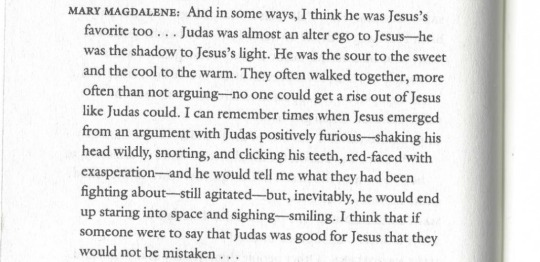


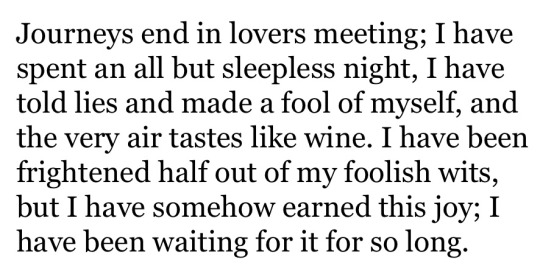

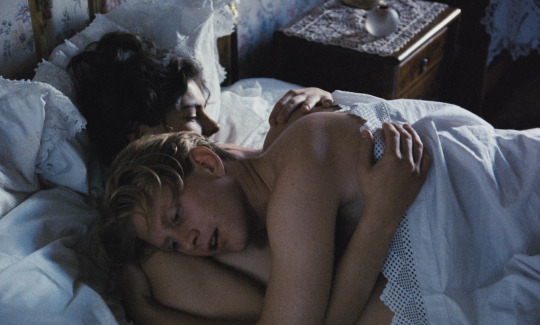
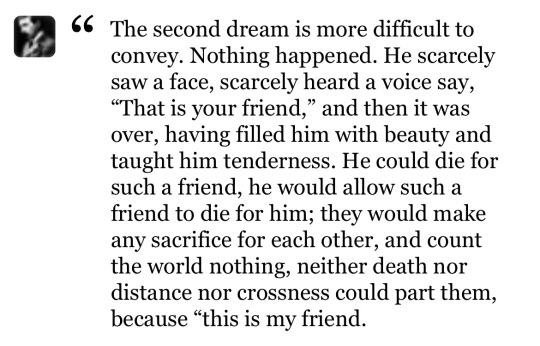
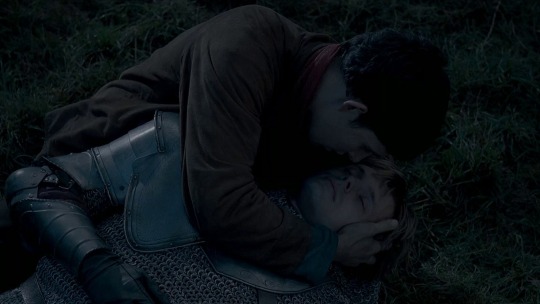

about devotion
#it chapter two#it stephen king#stephen king#reddie#last days of judas iscariot#1917#1917 film#the haunting of hill house#maurice (1987)#maurice#e.m. forster#merthur#merlin#giovanni’s room#quotes#web weaving#gay#queer longing#literature#.txt
165 notes
·
View notes
Photo

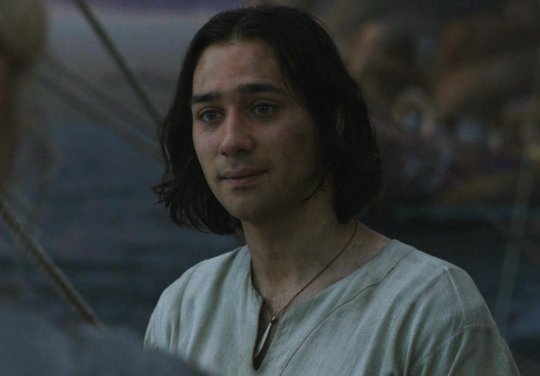
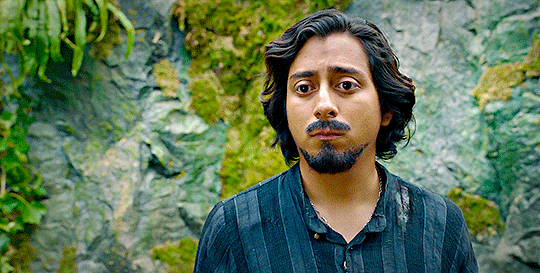

not me collecting all these babygirl men like infinity stones
#i wanna see them go on an adventure together#maybe i'll write a book about that#judas iscariot#the chosen#isildur#the rings of power#graydon hastur#willow 2022#merlin emrys#bbc merlin#luke dimyan#maxim baldry#tony revolori#colin morgan
76 notes
·
View notes
Text


merlin bbc 5x01 vs leonardo da vinci's "the last supper"
arthur, merlin, leon
vs
st. john, st. peter, judas iscariot
3 notes
·
View notes
Link
by indiantaylor
Arthur Pendragon learns of Merlin's death after drinking the poison in his stead. He becomes inconsolable, unsure of where these feelings are coming from, his Alpha forces him to stay sick thinking his mate is dead. When the cure takes effect twenty-four hours later, Arthur finds himself miraculously healed.
With the threat of war imminent, Arthur is torn between his duty as Prince and his blossoming feelings for Merlin.
Words: 1242, Chapters: 1/2, Language: English
Fandoms: Merlin (TV)
Rating: Mature
Warnings: No Archive Warnings Apply
Categories: M/M
Characters: Merlin (Merlin), Arthur Pendragon (Merlin), Gwen (Merlin), Morgana (Merlin), Lancelot (Merlin), Gwaine (Merlin), Elyan (Merlin), Leon (Merlin), Percival (Merlin), Gaius (Merlin), Morgause (Merlin), Cenred (Merlin)
Relationships: Merlin/Arthur Pendragon (Merlin)
Additional Tags: Omega Merlin (Merlin), Alpha Arthur Pendragon (Merlin), Alpha Lancelot (Merlin), Omega Verse, Alpha/Omega, Camelot, Mpreg
11 notes
·
View notes
Text
Sir Lancelot and Queen Guenivere
I enjoyed reading this story. At first, I thought it was Lancelot driving the story, but it is indeed Guenivere. I was intrigued by the amount of misfortune that appeared to drive the story as well. Too much of one thing just seems unbelievable. I am still caught up on the fact that Arthur is perfectly okay with this love affair. I just finished watching Excalibur and saw how Arthur chose not to kill Lancelot for this. Obviously we know that King Arthur is king before he is a husband to Guenivere. Perhaps this plays a role into Lancelot sleeping with his wife. I just don’t understand how you can be that close to someone and yet have them betray you like that. Kind of reminds me of Judas Iscariot. Merlin also said in Excalibur that the danger we face the most is often by those closest to us. 0.o
1 note
·
View note
Text
The following is a critical analysis I did on Mordred’s Song by Blind Guardian some years back. Figured I’d post it here and see what everybody else thought of it.
MORDRED: VILLAIN OR VICTIM
Abstract
The following analysis is on “Mordred’s Song” by German power metal band Blind Guardian and its driving theme is that Mordred is less a villain and more a victim of fate. The ballad gives us Mordred’s side of the story concerning his feelings regarding his fate as the ultimate betrayer of his father King Arthur, the usurper of Camelot, and the cause of his final downfall as well as her personal feelings regarding his destiny. Instead of the popular depiction of him as a cursed child who maliciously covets his father’s throne, kingdom and (in some versions) even his queen, here he is depicted as a tragic victim of fate groomed for his entire life to destroy his father, never given a say otherwise. In other words, a pawn in another’s bid for power.
In Morte D’Arthur, compiled by Sir Thomas Malory, Mordred is the bastard son of King Arthur conceived by his half-sister Morgauise. Much like his father before him, his conception is marked by the breaking of numerous societal and religious taboos such as incest, witchcraft and in some versions, rape. It is foretold that this “child of evil” will eventually be the one to bring about Arthur’s doom. Years down the line, Mordred eventually grows to become one of the Knights of the Round Table and actually proves to be one of its more prominent members, earning praise from even Lancelot himself. It all goes downhill once he learns who his father is and the circumstances of his birth. All details aside, he eventually launches a coup in an attempt to oust his father as king and usurp the throne of Camelot. In many versions of the epic, Mordred is often cast as the villain, the devil child, the archetypal dark prince, an “evil bastard” in a figurative and literal sense. One such alternative character interpretation comes from German power metal band, Blind Guardian in their aptly titled “Mordred’s Song”. Here, listeners are given a chance to see through Mordred’s eyes and walk in his shoes as he feels trapped by his supposed destiny to bring about his father and Camelot’s downfall. Here, the so-called “evil prince” is less a villain seeking to supplant Arthur as king and more of a victim of fate, lamenting what he’s essentially been groomed all his life to do.
The very first line “I’ve lost my battle before it starts” (Line 1) foretells that he’s fully aware that he was essentially doomed from the start. With his birth marked by the breaking of numerous taboos and his eventual bid to oust Arthur and take Camelot, (and in some versions Guinevere as well) Mordred knows that it’s all to easy for him to be labelled as somebody destined to be the villain. “I’ve gone beyond the truth, it’s just another lie.”(lines 30-31) indicates to listeners that Mordred has been manipulated and lied to all his life to the point that he doesn’t know who to believe anymore. It remains unclear whether Mordred’s attempted power grasp was made of his own volition or whether he was influenced or manipulated by another.
“But fate fooled me and changed my cards” (lines 12-13) is a possible reference to tarot cards often used in divination and fortune telling, thus further highlighting Mordred’s role in the ballad as a victim of fate. “No Joker’s on my side” (line 19) references the joker card’s usual status in many card games as the “trump card” which often ensures victory where it would be impossible under normal circumstances. The line tells us that Mordred has no “trump card” that allows him to defy his dark destiny. The chorus line “I turn off the light and murder the dawn” represents Mordred’s apparent resignation to his fate. He knows that because of the circumstances of his birth and his usurpation of the throne, this verse indicates that he’s fully aware that he’s doomed to be forever be cast as the villain, the traitorous son, the Judas Iscariot of Camelot. Especially since that while Arthur has committed some actions worth calling out for the sake of keeping his throne. (i.e. the May Day massacre where in an attempt to get rid of the then unknown Mordred, Arthur pulls a Herod and decrees that every child born on May 1 of that year to be carted off to sea to be shipwrecked. Mordred himself survived that event.), Arthur is not remembered either in his time or in modern days as a tyrant. However, Mordred during his reign as “interim king” is well received as king because as noble as Arthur was, his reign was marked by near constant warfare whereas Mordred promises the peace that has long eluded the land. The line “In agony, we’re unified” (line 34) speaks upon Mordred’s feelings of loneliness regarding his father. In Mary Stewart’s book, “The Wicked Day”, it shows that Mordred possibly loved Arthur as his father and felt some sort of loyalty towards him in spite of his fate as shown in the following exchange with his mother:
Morgause tells Mordred:
If Merlin saw it written in the stars that you would be Arthur’s doom, then how can you escape it? There will come a day, the wicked day of destiny, when all will come to pass as he foretold (Stewart, 234)
Mordred’s reply to this
Now that I am warned, I shall know what to do. If I have to leave court and stay away from him, I shall do it. No power on earth can make me lift a hand to kill unless I wish it, and this death I swear to you I shall never undertake. I swear it by the Goddess herself (235)
As Amber Kelly-Anderson notes in her own analysis on Mordred,
“Mary Stewart really focuses on the development of Mordred, whose destiny is dictated by fate and misunderstanding, rather than the innate malevolence of earlier characterizations in the Legend. In The Wicked Day Stewart’s Mordred is a thoughtful, conflicted young man who acts out of necessity rather than malice; his treachery is rather reluctant and the result of circumstance (Amber). In this way, Mordred’s character is redefined, making him more human and less villainous.” (Sheble, p. 13) The line can also be used to hint at the feelings of not just the son but the father as well. In the same manner that there is no indication on how Mordred feels about his actions, Arthur’s feelings on facing his son in battle are ambiguous as well. Both of them know that the path they’ve been set on can only end one of two ways. Either the father dies by the hand of the son or the son dies by the hand of the father. Either way, their relationship is doomed to end in tragedy.
The song references Mordred’s father, Arthur, referring to his eventual fate of his attempt to usurp his throne and meeting him in battle. “I am the fallen one” (chorus line 2) can also be taken as a sort of Biblical reference regarding fallen angels. For example, Lucifer, whose pride and jealousy saw him cast from heaven, taking a host of angels with him into hell. Lucifer would ultimately become Satan, the source of all evil according to Christian doctrine and the mortal enemy of God and his servants. “Wash away the blood on my hands, my father’s blood” (lines 32-33) foreshadows his final showdown with his father towards the end of the Battle of Camlann, the ultimate confrontation between father and son where both strike each other down.
The driving theme behind Blind Guardian’s ballad “Mordred’s Song” is that Mordred is not so much a villain lusting after his father’s throne as he is more of a victim of fate, resigning himself to being branded as a traitor and fallen knight. Here, Mordred is no scion of evil as he is often cast but more of a tragic villain trapped by fate to ultimately slay the father and by extension bring about the downfall of Camelot as well as his own in the process. Metaphors are used to highlight his personal pain as he struggles between his personal morals and what he’s been groomed all his life to do. Symbolism is used. Allusions to the Arthurian stories hint at the guilt Mordred possibly feels for his actions and hint at his final confrontation with his father. In the end, the ballad asks its listeners “Is Mordred is truly the villain as he is often presented as or is he simply a victim cursed by fate and groomed since childhood to play a role he probably never wanted to begin with? Is Sir Mordred, true son of King Arthur Pendragon, a villain or a victim?
Annotated Bibliography
Blind Guardian, “Mordred’s Song” from the album “Imaginations form the Other Side” from Century Media Records. Retrieved from
:http://www.darklyrics.com/lyrics/blindguardian/imaginationsfromtheotherside.html#5
The source material for the analysis. The song is essentially Mordred’s side of the story in his final dealings with his father. The ballad sees him lamenting what he’s been groomed all of his life to do. Eventually, he resigns to his fate.
Malory, Sir T. Le “Morte D’Arthur” from CRW, 2007ISBN 1904633978, 9781904633976
The original saga of King Arthur as compiled by Sir Thomas Malory as well as the inspiration for the previously discussed ballad. It includes the tales of Arthur and the knights of the Round Table, including Mordred himself. Here, it details Mordred’s knighthood and ends with the eventual coup against his father Arthur.
Sheble M. The Once and Future Hero, A Vindicated Mordred (2011, March 10) Retrieved from:
http://nchchonors.org/wp-content/uploads/2011/10/2011-SIRP-Sheble-Margaret.pdf
The source of the quotes found in this analysis. This is Margaret Sheble’s own analysis regarding the character of Mordred. Here, she examines many aspects of Mordred’s character, including theories concerning his childhood, his relationships with those around him and finally his eventual fall into villainy.
Steward, M., “The Wicked Day” Published from Ballatine Books, 1983 ISBN 0-449-91185-3
(paperback)
Fourth in Mary Stewart’s five part “Merlin” series. As with the ballad above, Mordred is shown as a victim of fate rather than a fallen knight. Here, Mordred is shown to be close with his father Arthur, but circumstances beyond his control as Mordred is drawn into the intrigues and infighting that marked the end of his reign.
1 note
·
View note
Text
Iscariot
read it on the AO3 at https://ift.tt/3dBqhj3
by indiantaylor
Arthur Pendragon learns of Merlin's death after drinking the poison in his stead. He becomes inconsolable, unsure of where these feelings are coming from, his Alpha forces him to stay sick thinking his mate is dead. When the cure takes effect twenty-four hours later, Arthur finds himself miraculously healed.
With the threat of war imminent, Arthur is torn between his duty as Prince and his blossoming feelings for Merlin.
Words: 1242, Chapters: 1/2, Language: English
Fandoms: Merlin (TV)
Rating: Mature
Warnings: No Archive Warnings Apply
Categories: M/M
Characters: Merlin (Merlin), Arthur Pendragon (Merlin), Gwen (Merlin), Morgana (Merlin), Lancelot (Merlin), Gwaine (Merlin), Elyan (Merlin), Leon (Merlin), Percival (Merlin), Gaius (Merlin), Morgause (Merlin), Cenred (Merlin)
Relationships: Merlin/Arthur Pendragon (Merlin)
Additional Tags: Omega Merlin (Merlin), Alpha Arthur Pendragon (Merlin), Alpha Lancelot (Merlin), Omega Verse, Alpha/Omega, Camelot, Mpreg
read it on the AO3 at https://ift.tt/3dBqhj3
0 notes

